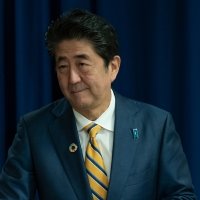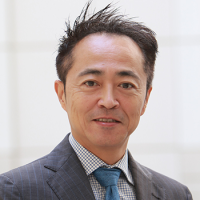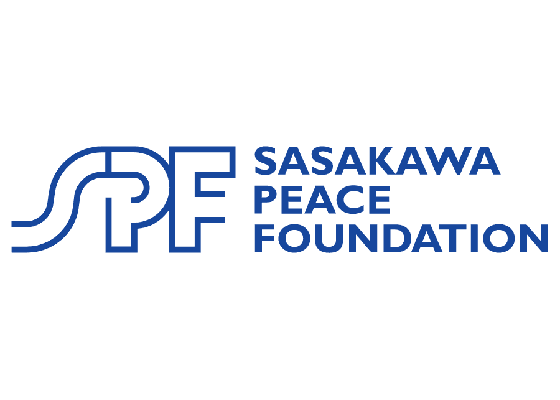Interview with Former Prime Minister of Japan Shinzo Abe and Post-Interview Analysis
An exclusive interview of former Japanese Prime Minister Shinzo Abe with the Wilson Center’s Japan Scholar Yuichiro Hanazawa discussing Russia’s invasion of Ukraine, U.S.-Japan relations, Taiwan policy, and the outlook for the Indo-Pacific.
A panel discussion to analyze the interview with Yuichiro Hanazawa, Abraham Denmark, and Shihoko Goto followed.
Key Takeaways
- The role of the U.S.-Japan security alliance is now an alliance that is vital to ensure peace worldwide. Tokyo and Washington are committed to work together to ensure the stability of the global order and protect universal values.
- Given its unique international status, Taiwan is potentially far more vulnerable to foreign pressure than Ukraine. There is certainly a sense of urgency that what happened in Ukraine could also happen in Taiwan. At the same time, China is now well aware of the economic damages and the difficulties it could face if it were to invade Taiwan.
- Creating a multilateral security alliance similar to NATO in Asia will be politically difficult. But Japan needs to enhance its own defense capabilities, and have greater discussions about how to protect Japan from nuclear threats. Japan is under the U.S. nuclear security umbrella, and the country must consider how extended deterrence functions in concrete terms.
Selected Quotes
Shinzo Abe: Why Taiwan is in a more challenging predicament than Ukraine
“And on Taiwan, China has taken a position that Taiwan is a part of China and it’s different from the relationship between Russia and Ukraine. At the same time, we are in a situation where Taiwan is not recognized as a nation by most of the countries in the international community. Of course, it is not even a member state of the United Nations. I think that is the big difference from Ukraine. But, ultimately, it’s a question of whether or not China will start invading Taiwan militarily, knowing they will suffer economic damage. In that sense I think that China has not made a decision. The fact that they have not done so does not mean that they have decided that they won’t.”
Shinzo Abe on the implications of global response to Ukraine
“We have a sense of urgency that what happened in Ukraine could happen in Taiwan. In order to prevent such a situation from occurring, I believe that the international community should unite in raising strong voices against Russia at this time and impose severe sanctions on them, which will lead to preventing the same thing from happening in Asia.”
Moderator: “That is why if Japan also shows a firm stance, it will affect not only this situation but also Japan’s national security, right?
Shinzo Abe: “That’s what I mean. If Japan does not demonstrate this kind of attitude today, I do not think Japan will be able to demonstrate leadership in Asia. I believe that Prime Minister Kishida believe that Japan must show leadership in this instance in order to demonstrate firm leadership in Asia.
Shinzo Abe on the importance of defense posturing
“That is an important point, but it is necessary to first discuss how to prevent such a situation from occurring. In order for us to do that, if the U.S. and Japan show the firm stance that we do deal with the situation with strong measures, then of course China will hesitate and refrain from making any moves. If both the U.S. and Japan take a position that we sit here just observing the situation from the sidelines and doing nothing, it will lead to a situation where China may take a step to use military force to achieve unification. That is why we have to reach a national consensus on the need to clearly show our positions.”
Shinzo Abe: Why the U.S.-Japan alliance matters for the World
“I think that the Japan-U.S. alliance has become the Japan-US alliance in the world. With the Peace and Security Legislation, Japan and the U.S. can help each other. It has become an alliance that we can help each other, which will lead also to defending Japan. Our bond has gotten much stronger. I stated that ‘the Japan-U.S. alliance is an alliance of hope' at a joint session of the U.S. House and Senate. Because we share universal values and we are the largest and the third-largest economies in the world, I think this alliance has to be an alliance we interact with each other in order to make a better world. Of course, since we are different countries, there are times when our national interests conflict. But, I believe there are many scenes where the Japan-US alliance exerts its strength by us cooperating for various common purposes such as protecting world order and universal values and entrenching them as much as possible. I believe we should respond to meet such expectations as much as we can.”
Speakers


Panelists


Hosted By

Indo-Pacific Program
The Indo-Pacific Program promotes policy debate and intellectual discussions on US interests in the Asia-Pacific as well as political, economic, security, and social issues relating to the world’s most populous and economically dynamic region. Read more


Hyundai Motor-Korea Foundation Center for Korean History and Public Policy
The Center for Korean History and Public Policy was established in 2015 with the generous support of the Hyundai Motor Company and the Korea Foundation to provide a coherent, long-term platform for improving historical understanding of Korea and informing the public policy debate on the Korean peninsula in the United States and beyond. Read more

